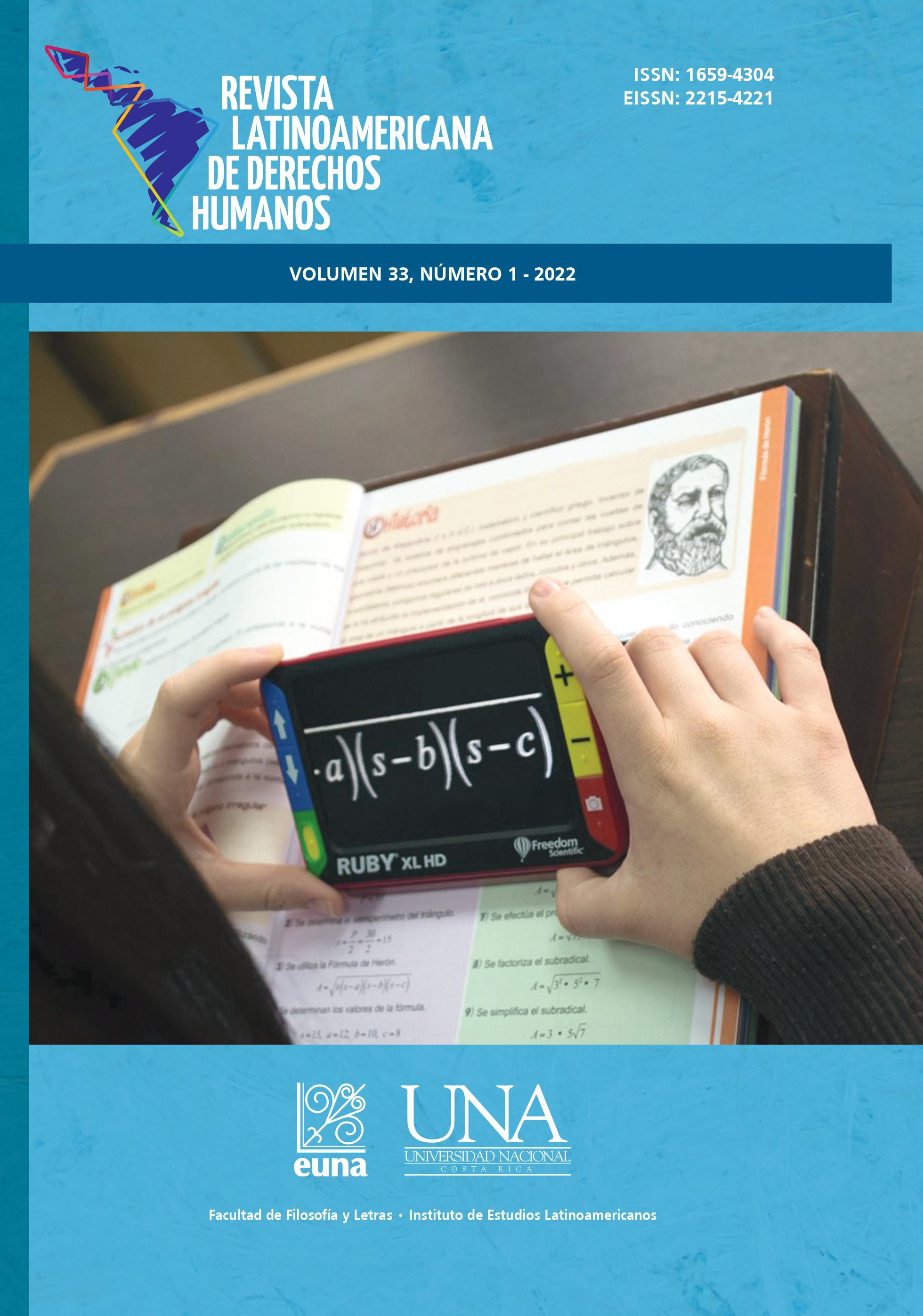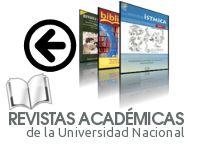Teaching human rights in higher education. Experiences during the pandemic
DOI:
https://doi.org/10.15359/rldh.33-1.6Keywords:
universities, human rights, teaching, pandemicAbstract
Throughout these pages we propose to analyze the experience of a specific and limited educa- tional space: we refer to the ways in which students at the Universidad Nacional de Lanús, in Argentina, have gone through their educational experience during 2020, the year of the pande- mic. We present the results of a survey conducted during 2020 to 537 students, who responded to a virtual self-administered questionnaire in July and November. The survey sought to know their perceptions about the training in human rights that they receive during their second year of studies. Based on a resolution of the Superior Council, all the people who study at said university must take a course on human rights, which seeks to advance towards the training of professionals who feel immersed and challenged by a culture of human rights. Therefore, in this article we propose to address two issues at the same time: to know the ways in which students perceive and give meaning to human rights, and to know what their experience of training in human rights has been in the months of pandemic.
References
CEPAL- UNESCO (2020). La educación en tiempos de la pandemia de COVID-19. https:// repositorio.cepal.org/bitstream/handle/11362/45904/1/S2000510_es.pdf
Pinto, M. (2020), La alfabetización en derechos humanos en la Universidad de Buenos Aires, en Badano R. y Cruz, V (comps.), Conversaciones en plural. Educación superior, derechos humanos y desigualdad en tiempos de pandemia, Editorial de la Universidad Nacional de La Plata (EDULP).
Quintero Mejía, M. y Camargo, M. (Comps.) (2010). Educación en derechos humanos. Pers- pectivas metodológicas, pedagógicas y didácticas. Universidad de La Salle-Colombia
Resolución 59/113 de la Aasamblea General de las Naciones Unidos “Programa Mundial de Educación en Derechos Humanos”, A/RES/59/113 (10 de diciembre de 2004). https://www.ohchr.org/sp/issues/education/educationtraining/pages/programme. aspx#:~:text=El%2010%20de%20diciembre%20de,humanos%20en%20todos%20 los%20sectores.
Rodino, A. M. (2014). Pensar la educación en derechos humanos como política pública. Revista de ciencias sociales, segunda época N.º 25, 129-139. Buenos Aires: Universidad Nacional de Quilmes. http://www.unq.edu.ar/advf/documentos/5939558c6ba3b.pdf
Salvioli, F (2014). Educación superior en derechos humanos. Una herramienta para la or- ganización y el desarrollo de la política pública del Estado. Revista de ciencias sociales, segunda época 121 Nº 25, 121-12. Buenos Aires: Universidad Nacional de Quilmes. https://ridaa.unq.edu.ar/bitstream/handle/20.500.11807/1593/09_RCS-25_dossier8. pdf?sequence=1&isAllowed=y
UNESCO- IESALC. (2020). Informe COVID-19 y educación superior: De los efectos in- mediatos al día después. Análisis de impactos, respuestas políticas y recomendaciones. http://www.iesalc.unesco.org/wp-content/uploads/2020/05/COVID-19-ES-130520.pdf
Downloads
Published
How to Cite
Issue
Section
License
El material que se publica en esta Revista está bajo una licencia “Creative Commons” 3.0 Costa Rica (CC, Reconocimiento-NoComercial-SinObraDerivada 3.0 Costa Rica (CC BY-NC-ND 3.0 CR) . Esto significa que el material publicado en la revista se puede compartir (copiar y distribuir) en cualquier medio o formato considerando que se debe reconocer de forma adecuada la autoría del material y la fuente, no puede utilizarse con fines comerciales y no se aceptan las obras derivadas (remezclar, transformar o crear a partir del material).








